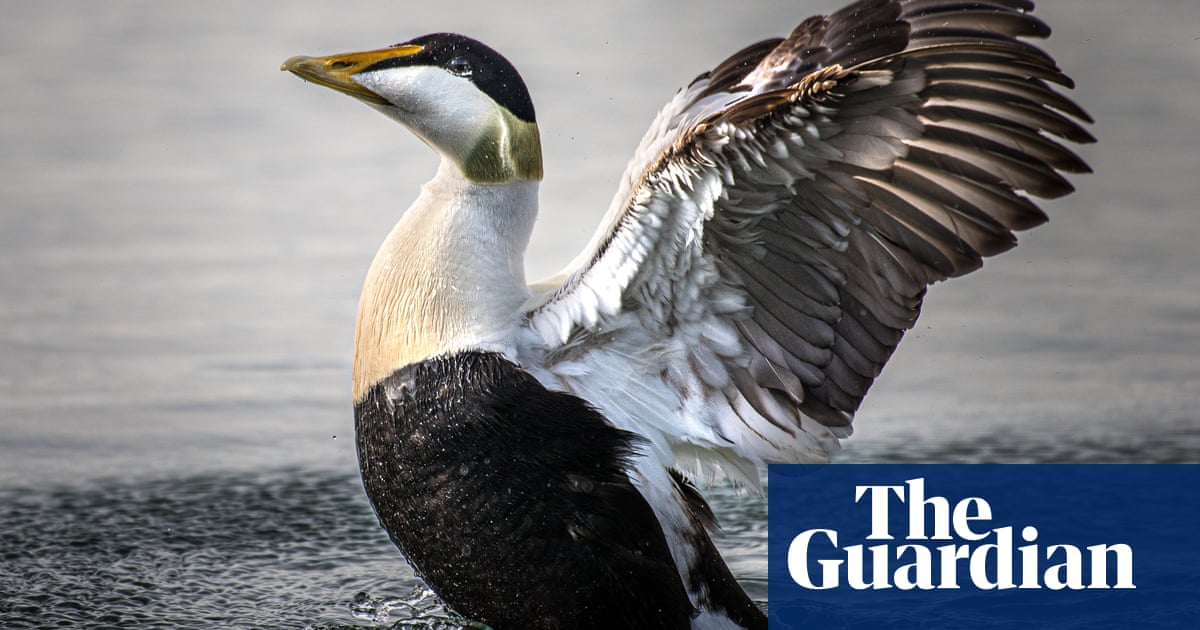In his latest book, James Rebanks, the Lakeland shepherd turned bestselling author, sets off for the Arctic Circle in search of an elusive creature and an almost forgotten way of life. We find him in a rain-lashed house on a lonely island reading Moby-Dick. Is this a clever literary device? Are we in for a magnificent obsession and a baggy monster of a book that shouldn’t really work but somehow does? The perhaps surprising answer is: we are.
Rebanks made his name with accounts of his love-hate relationship with farming: love of the land and the old ways practised by his grandad, a shepherd before him; hate for the mechanisation and pharmacology of Big Agriculture. His prose is deceptively unvarnished with flashes of colour: bright birds’ eggs in a well-found barn. Our best observers of the world around us are farmers, not only Rebanks but John Lewis-Stempel – nature writers with dirt under their fingernails.
Rebanks sometimes travels for work to supplement his income, and once found himself on a boat trip to remote islands in the Norwegian sea. “My companions were all staring at a woman on the shore. Her hair was blowing loose in the wind … she made the little hairs between my shoulder blades stand up.” Had he seen a mythical huldra, part woman, part beast? In fact, he had glimpsed a figure almost as fantastical, a “duck woman”, one of the last Norwegians who scratch a living from tending wild eider ducks and selling their down to fill pillows.
Rebanks went back to Cumbria and the family farm. But as the years passed, he found himself haunted by what he’d seen in Norway. “There was something alive in her that had died in me. I had seen it in her eyes.” He seeks her out, a woman called Anna, who is by now in her 70s. He arranges to stay with her and learn about her hardscrabble calling. His quarry is not the great white of Herman Melville’s masterpiece but a black-and-white seabird. It’s an existential quest, all the same: Rebanks’s Moby-Duck.
Anna’s life is not for everyone, which is one reason why hardly anybody lives it any more. The island of Fjærøy is cut off except for the occasional visit of a friend with a boat. “There was no blaring TV, no internet, no social media and even the radio was mostly switched off.” And the ducks have declined as newly introduced mink have flourished. Rebanks learns to scavenge seaweed and arrange it into cushions of kelp for the mother ducks.
Gradually, he discovers that Anna isn’t quite what she seems. He has a weakness for older role models who appear to have an authentic relationship with the natural world. But though she was the daughter of a duck man, she didn’t immediately follow him into the work. Instead, she spent much of her life on the mainland, where she had a steady job. Twice married, she has four children. It was only when she turned 50 that she began visiting Fjærøy.
The Place of Tides may tell you more than you thought you wanted to know about ducks. And the stakes may seem small: if Anna is the last of her kind, we might end up with fewer eider and a lower tog count on our duvets, arguably the least of our worries in a climate emergency. But with the patience of a man making his rounds of birds’ nests, Rebanks shows that degradation of the environment happens in small ways and faraway places, too. And while he begins by admiring Anna for her bloody-mindedness, a woman on her own enduring a tough life, after she takes him to her home town to meet her extended family, including her ex-husbands, Rebanks realises that the broader lesson he can take from her is forgiveness.
after newsletter promotion
